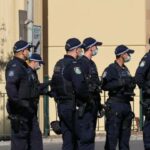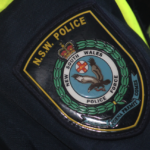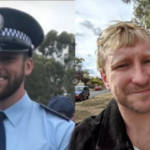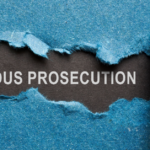NSW Partially Admits Malicious Prosecution of Justice Activist Luke Brett Moore: An Interview
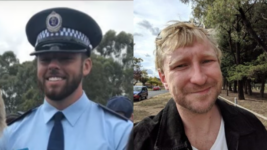
Luke Brett Moore was illegally strip searched by Goulburn police in 2017. And around the time he placed a call to Newtown police station to make a complaint about the NSW police strip search policy, in February 2021, a long-term civil society campaign against strip searches was ongoing.
Moore spoke to NSW police constable Daniel Keneally on the night of 24 February three years back. And despite the two men never having interacted with each other before, after the call, Keneally produced a false statement accusing Moore of telling him he was going to kill a specific police officer.
On the following day, detectives from the NSW Police Fixated Persons Investigation Unit turned up at Moore’s house, arrested him and laid three charges against him, including using a carriage service to make a death threat, contrary to section 474.15 of the Criminal Code Act (1995).
And despite Moore having to spend three weeks in solitary confinement, Keneally’s rather large fib was eventually found out because Luke, a law graduate, had recorded the phone call he made to the police station, which proved that he’d made no threatening remarks whatsoever.
Then Keneally, the son of former NSW premier Kristina Keneally, was convicted of fabricating evidence, contrary to section 317 of the Crimes Act 1900 (NSW). And despite this offence carrying ten years gaol time, he was sentenced to a 15-month intensive correction order (ICO) last December.
And just last week, in response to the dismissal of Keneally’s appeal of his conviction in June, the NSW state admitted, in the civil suit Moore’s brought against it, that he was maliciously prosecuted, but the state further stressed that this was only by one individual, namely Keneally.
Sydney Criminal Lawyers spoke to justice advocate Luke Brett Moore about how it came to pass that he spent three weeks in prison when there was clear proof that he hadn’t threatened anyone’s life, as well as why he doesn’t consider justice has been fully served after last week’s concession.
On 24 February 2021, you called Newtown Police Station to complain about the NSW Police Force strip search policy and happened to get NSW police constable Daniel Keneally on the phone.
But after making your complaint, detectives from the Fixed Persons Investigation Unit turned up at your home and arrested you and took you away to the South Coast Correctional Centre.
So, Luke, how did it get to the point that a simple complaint led to you being locked up in prison?
Immediately after I spoke to Daniel Keneally, he started fabricating the story that I’d threatened to kill a detective from Goulburn, which was completely untrue.
Funnily enough, I didn’t even mention the detective on the phone at all and neither were a whole lot of things said that Daniel said I said.
So, within hours, it ended up being referred to the Fixed Persons Investigation Unit. And then, the next day they came and arrested me as I was in the park on the way to the supermarket. They took me into custody and then raided my house.
So, Keneally claimed you threatened the life of a specific officer you hadn’t even mentioned on the phone?
Yes. That’s correct. And if you have a look at what Keneally actually says I said, he made out like it was a two-way conversation, where he said something and then I said something.
Keneally claimed that I said I was going to follow this detective home. That I knew where he lived and worked. He said that I wanted him dead, and he was “good as gone off this planet”.
It was very specific what Daniel wrote in his statement. And part of the reason why he ended up being found guilty is he used quotation marks.
So, he didn’t allege the conversation went something like this but made out that I said, “I am going to follow him home,” and then he said, “What are you going to do?”
It went back and forth. There are a couple of quotes in the judgement where he said exactly what he claimed I said, and it never occurred.
I’ve read that in response to the recent outcome in this case last week that people are now suggesting that calls to police stations should be recorded.
But it turns out that at Newtown police station, they can record conversations, but Keneally didn’t know about it.
Yeah. A lot of people would have already assumed that calls to police stations are recorded. Triple 0 calls are recorded.
But obviously, there are privacy concerns with that if people are ringing up the police station to give them information.
So, they’re generally not recorded. Although they’re not recorded when they do have the power to, or at least at Newtown, they didn’t.
When you first told me about this in August the year it happened, I didn’t find it hard to see how you could end up arrested over false accusations, but I did find it hard to see how it could get to the point that you spent three weeks in prison in isolation, especially when there was a recording.
How did it drag on for so long? And what got you out of there in the end?
Well, that’s where this story gets deeper, and it does involve more than just Daniel Keneally.
In particular, detective Felgate, who was the officer in charge of my prosecution, he did the interview with me and during that, I told him that I didn’t say any of that stuff and that there was a recording on my phone. I told him to go get the phone and listen to it.
He didn’t listen to the recording at the time. But a couple of days later, he did listen to it.
But on listening to it, rather than doing the right thing, which was everything he could to get me out of gaol, he set about covering up for Daniel Keneally and continuing my prosecution, when he knew I was innocent.
So, did he eventually raise the recorded conversation whilst you were still detained and then that saw you released?
No. He never did anything. He continued to prosecute me for another four and a half months and it wasn’t until the Commonwealth Director of Public Prosecutions took over that they dropped the charges.
So, the detective kept prosecuting me after he listened to the recording and after he finished listening to the recording, he signed his statement alleging everything Keneally said was true, even though he knew it was false at the time of signing his statement.
The Law Enforcement Conduct Commission (the LECC) has refused to investigate him. And I’ve spoken to NSW police commissioner Karen Webb, who said that they’ve done an investigation and found he’s done no wrongdoing.
But the only sensible thing for him to have done at that time is he should have verified it, and then done everything he could to get me out of gaol.
But he actually withheld the recording from me for another three and a half months. I didn’t get a copy of the recording until the end of May, so he withheld it from February.
And at the same time, he signed a statement that everything that Keneally said was true and that I had rung up and threatened to kill a cop, which he handed to the Commonwealth prosecutor, who dropped the prosecution almost immediately.
So, when you were released after three weeks solitary confinement, you were released on bail?
I was. I wasn’t released because of the recording.
The recording had nothing to do with me being released and in fact, the prosecution had been half handed to the local police here in Nowra, and they still contested my bail application, even though they probably knew about the recording as well.
But certainly, Felgate knew about the recording. He’s the officer from the fixated persons unit. He knew about the recording. He’d listened to it while I was in gaol and didn’t do everything he could to get me out, instead he withheld the recording.
So, nothing was done about Keneally’s behaviour after the CDPP dropped the charges. In fact, he was only charged after the matter was pressed three times in NSW parliament, which led to the LECC investigation that then saw the NSW Director of Public Prosecutions charge him with fabricating evidence.
And Keneally was then found guilty in November last year, with the Downing Centre Local Court not buying his defence of honest mistake. And a month later he was sentenced to a 15-month-long intensive correction order.
Keneally then appealed this to the District Court in June, and it was dismissed. And he then quit the NSW Police Force of his own volition as he was still employed by it.
How did you feel about the court process and the outcome of the case in the end?
Keneally should have done gaol. There is no doubt about it. He singlehandedly made up a story that saw an innocent man locked up for three weeks and prosecuted for four months for a crime that he didn’t commit.
This is all on Keneally. And the dangerous thing is that it sets a precedent that if other police fabricate stories to get people locked up, essentially, they’re not even risking gaol if they do so, because the courts only give them 200 hours community service.
Keneally was suspended on full pay at one point. So, he sat at home for 12 months earning two grand a week, while he was doing nothing.
So, now we get to last week’s development, which involves your NSW Supreme Court civil case, in which you’re suing the NSW state for having falsely imprisoned and attempting to prosecute you.
And the effect of Keneally’s appeal decision has forced the state to concede that you were maliciously prosecuted.
But it further specifically noted that this malicious prosecution doesn’t involves more than one person.
So, as a law graduate, who has been involved in such cases before, what does this mean for your civil suit against the NSW state?
The state was always going to have to concede that Keneally maliciously prosecuted me, but they waited two and a half years to do so.
In their defence, up until the other day, they were still alleging that Keneally did nothing wrong, and it was just an accident – no harm, no foul – and I didn’t suffer any loss or damage. They were still saying that up until last week.
Now they’ve conceded that Keneally did something wrong. But they’re not admitting that the detective that listened to the recording and kept on prosecuting me anyway did anything wrong.
So, how long has this civil matter been going on for now?
It was lodged in January 2022. So, it has been going through the courts for two and a half years now, and it doesn’t go to trial until May next year.
And whatever judgement I get it essentially comes down to damages. And while they’ve conceded Keneally was involved in the malicious prosecution, the case is also lodged against Felgate.
At worst your call to Keneally that night might have annoyed him but he reacted to the point of stating you threatened the life of a specific officer, which then led to three weeks of isolation, and if you hadn’t recorded the call yourself, you were facing three charges carrying up to 16 years.
That’s a pretty heavy prank for someone to pull on you. What does this say to you about the NSW Police Force?
Clearly, they don’t psych tests their officers. I don’t think there is any psychological testing before they bring them onto the force. And it shows that they’re not very well ethically trained either.
To become a lawyer, for instance, you’re taught from basically the minute you start law school or university, the importance of ethics, doing the right thing and to respect the court.
But police officers don’t get that. They don’t get any training about how they must act ethically at all times. Lawyers do more ethical training than police do and that’s a problem.
And lastly, Luke, now that the appeal was dismissed, and the state of NSW has admitted the malicious prosecution occurred, do you feel like you’re beginning to see justice served?
The LECC originally declined to investigate, and it was just fobbed off by Daniel’s supervisor too.
You’re right when you say that it wasn’t until this matter was mentioned in parliament three times and there was significant media attention given to it, including from Sydney Criminal Lawyers, that the LECC’s hand was forced.
But they’re still denying that this other officer has engaged in any misconduct at all, and that to me is just completely unreasonable.
That’s if you just take the simple fact that he listened to the recording and not only didn’t come and get me out of gaol immediately, but he failed to report Keneally’s misconduct as well.
And we now know that recording was enough to prove beyond a reasonable doubt that Daniel fabricated evidence.
But the detective that listened to that never even reported him for misconduct. He sought to cover the whole thing up and continue my prosecution.
That is the big issue now. The big issue continues to be that despite all the publicity and despite it being mentioned in parliament, at this time, they’re still covering up for that detective.



